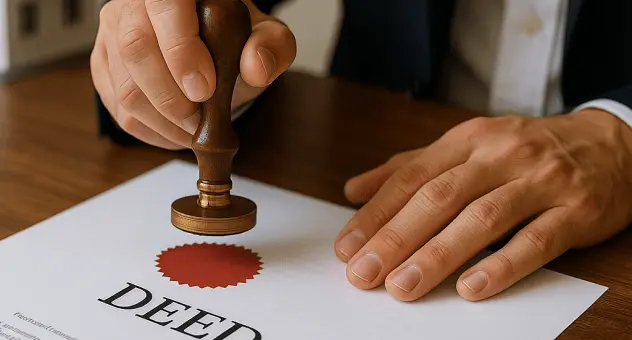What is Deed?
Deeds are legal documents used to convey property rights. They are essential when buying or selling real estate. Explore state-specific templates for your needs.
Deeds are essential documents for transferring property ownership. Our attorney-drafted templates are quick and easy to complete.


Access everything needed for owner-financed real estate transactions in one place, including several essential legal forms.

Get everything needed to satisfy, release, or cancel a mortgage in one convenient package.
Access everything needed for owner-financed real estate transactions in one place, including several essential legal forms.
Transfer property quickly and easily between spouses and multiple individuals with this straightforward deed.
Ideal for buyers and sellers in real estate transactions, this agreement outlines payment terms and property details, ensuring a secure purchase process.
Ideal for transferring property ownership between individuals without the need for extensive legal formalities.
Ideal for transferring real estate as a gift between partners, exempting recordation taxes if no consideration is involved.
Transfer property ownership securely with a legally binding agreement between individuals.
Use this document to transfer property ownership from one partner to both partners, simplifying joint ownership in real estate.
Perfect for transferring property as a gift, this document formalizes the ownership change without monetary compensation.
Transfer property ownership from two individuals to one with this straightforward deed, vital for simplifying title transfers.
Essential for transferring property by executors, trustees, and other fiduciaries, ensuring legal compliance and proper documentation.
Deeds must be executed and often require notarization.
Different types of deeds serve various transfer purposes.
Property deeds must be recorded in the county land records.
Title insurance may be recommended for property transfers.
A deed does not necessarily reflect current ownership if not recorded.
Begin your process with these simple steps.
A will outlines your wishes, while a trust can manage assets during your lifetime.
If no plans are made, state laws determine how your assets are distributed.
It's wise to review your plan every few years or after major life events.
Beneficiary designations typically override will instructions for assets like life insurance.
Yes, you can appoint different agents for financial and healthcare decisions.








